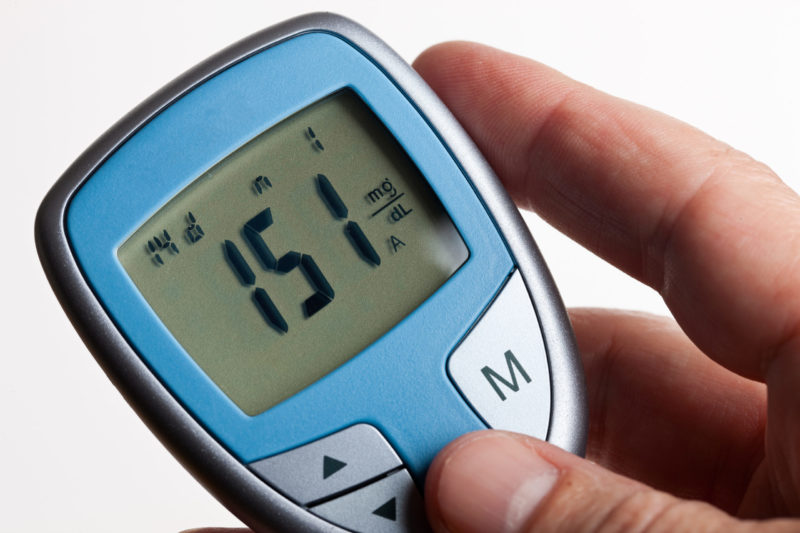Learn more about our FREE COVID-19 Patient Support Program for chronic illness patients and their loved ones.
If you have type 2 diabetes, you likely know that this condition raises your risk of developing serious complications from COVID-19. Now a new study suggests that elevated blood sugar often overlaps with worse COVID outcomes, even for people who don’t have a diabetes diagnosis.
These findings suggest that it’s important to monitor the blood sugar levels of patients who are hospitalized for COVID-19.
Generally speaking, normal (non-fasting) blood sugar is defined as less than 140 mg/dL, and people with diabetes are advised to aim for less than 180 mg/dL.
While someone who has consistently high blood sugar is considered to have diabetes, it’s possible for a someone without diabetes to have a temporary rise in blood sugar — such as while your body is fighting off a major infection. That might happen to some people who contract COVID-19.
According to a new study, presented at the Endocrine Society’s Virtual ENDO 2021 meeting, both people with diabetes and without diabetes may have worse outcomes when hospitalized for COVID-19 when their blood sugar levels are elevated. For the study, researchers analyzed the data of 708 patients who were admitted to a Brooklyn, New York hospital between March and May 2020.
Overall, they found that patients, whether they had diabetes or not, who came to the hospital with a blood sugar level of 140 mg/dL or more had a higher chance of being admitted to intensive care, requiring intubation (to help with breathing), and dying than patients who entered with normal blood sugar levels. That said, there were differences based on diabetes status and initial blood sugar levels.
Diabetes patients with high blood sugar levels, for example, required longer hospital stays than people who did not have diabetes but who had high blood sugar levels. More than twice the number of diabetes patients with an admission glucose greater than 140 mg/dL were admitted to the ICU and intubated than those with lower glucose levels. Finally, almost twice the number of diabetes patients with admission glucose levels greater than 180 mg/dL died.
People who did not have diabetes, but who had elevated blood sugar levels, didn’t fare much better. Twice as many people without diabetes who arrived at the hospital with glucose levels higher than 140 mg/dL died than those with lower glucose levels, and 3.5 times as many were admitted to the ICU. Four times as many people without diabetes who arrived at the hospital with blood sugar levels higher than 180 mg/dL died and almost three times as many were admitted to the ICU as those with lower blood sugar levels.
Whether high blood sugar makes COVID-19-related complications more likely isn’t clear; it’s equally possible that developing more severe complications is what causes blood sugar levels to spike.
It’s also possible that some of the people without diabetes actually had diabetes but didn’t know it because they hadn’t recently been screened for it.
“These findings suggest that patients presenting with hyperglycemia [high blood sugar] require closer observation and more aggressive therapies,” the authors wrote. “This raises the testable hypothesis that intensive glucose control may improve outcomes in patients with COVID-19.”
Get Free Coronavirus Support for Chronic Illness Patients
Join the Global Healthy Living Foundation’s free COVID-19 Support Program for chronic illness patients and their families. We will be providing updated information, community support, and other resources tailored specifically to your health and safety.
Nondiabetic Hyperglycemia. Drugs.com.
https://www.drugs.com/cg/nondiabetic-hyperglycemia.html
Skwiersky S, et al. Sugar is not always sweet: exploring the relationship between hyperglycemia and COVID-19 in a predominantly African American population. ENDO 2021.March 20 – 23, 2021. https://www.newswise.com/pdf_docs/161592890065976_Skwiersky%20Abstract.pdf
Understanding A1C. American Diabetes Association. https://www.diabetes.org/a1c/diagnosis.






